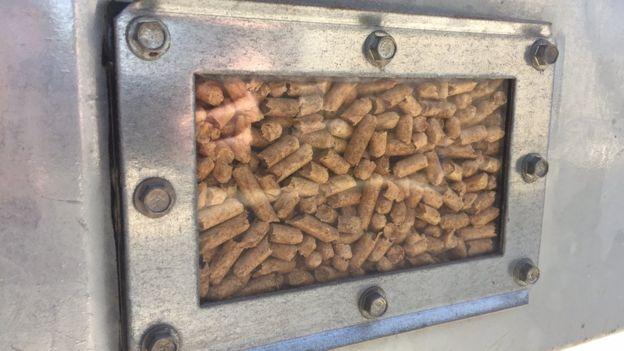RHI tax issue 'should have gone to European Commission'
- Published
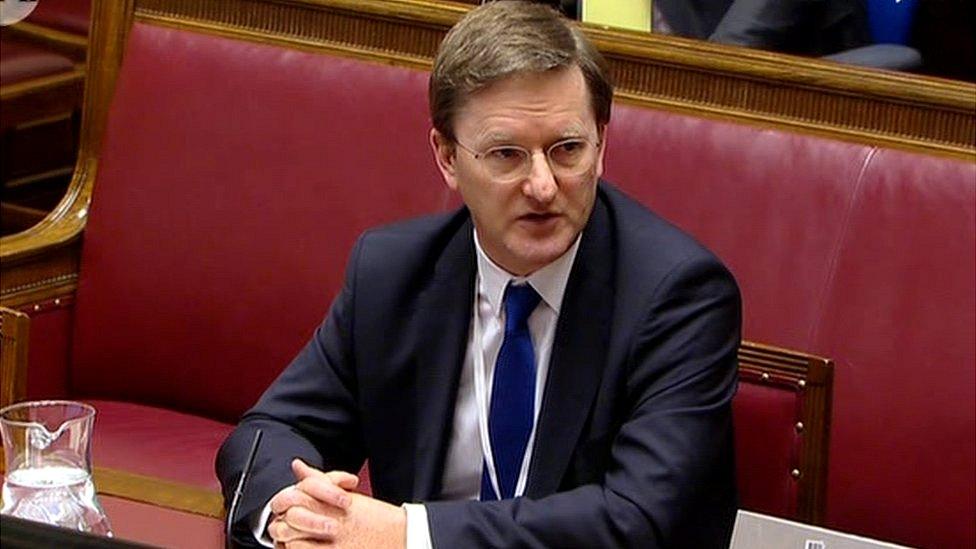
David Moore worked for the Department of Enterprise Trade and Investment
An RHI tax write-off should have been part of the information sent to the European Commission seeking approval for the scheme, an inquiry has heard.
The tax write-off was referred to in emails by a DUP special advisor,
The Renewable Heat Incentive inquiry was hearing evidence from Stephen Moore, who worked for the Department of Enterprise Trade and Investment.
His job was to review the proposed scheme in 2011 to make sure it complied with the commission's state aid rules.
The green energy scheme subsidised the cost of fuel to encourage the use of renewable heating systems.
But the fuel cost far less than the subsidy users were receiving, meaning they could earn by burning more fuel.
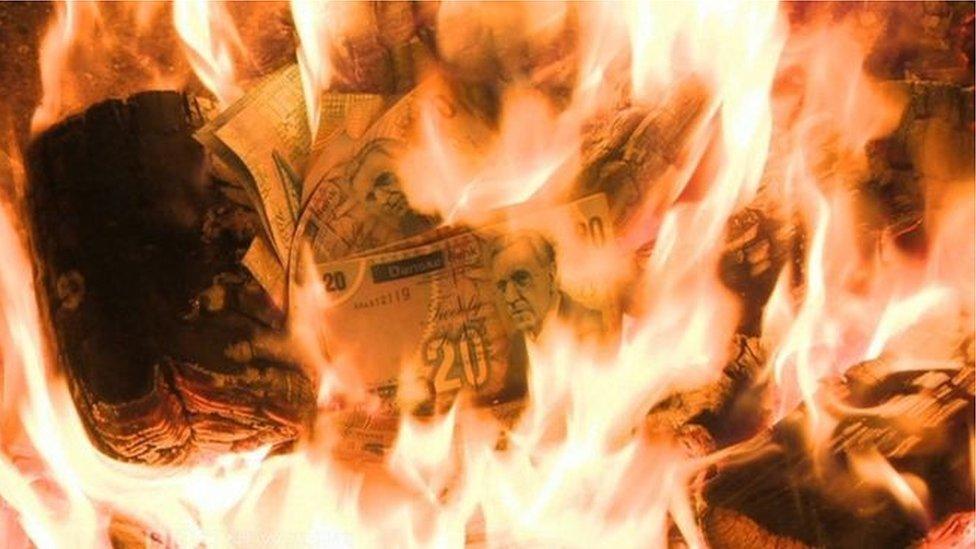
Flaws in setting the RHI scheme's subsidy rate left it open to abuse as claimants could earn more cash the more fuel they burned
On Thursday, Mr Moore was shown an email exchange between two DUP special advisors, dated July 2015, which talked about tax relief on boiler installations.
It was sent by Andrew Crawford, who was then in the finance department, to his party colleague Timothy Cairns, the special advisor in DETI who had taken over from him there.
In the email, Mr Crawford said the main problem with RHI was that DETI had been "caught out" by a spike of applications from Moy Park poultry farmers buying boilers before the end of the 2014/15 tax year.
Mr Crawford wrote: "This was very attractive, as farmers could get the RHI and write their investment off against tax as a result of the general investment allowances".
Inquiry counsel Donal Lunny asked Mr Moore whether this meant that the European Commission had been properly advised about the full financial implications of the RHI scheme.
Mr Moore said it was the first time he'd seen the email.
He said that had the issue been raised with him in 2011, it would have given him pause for thought.
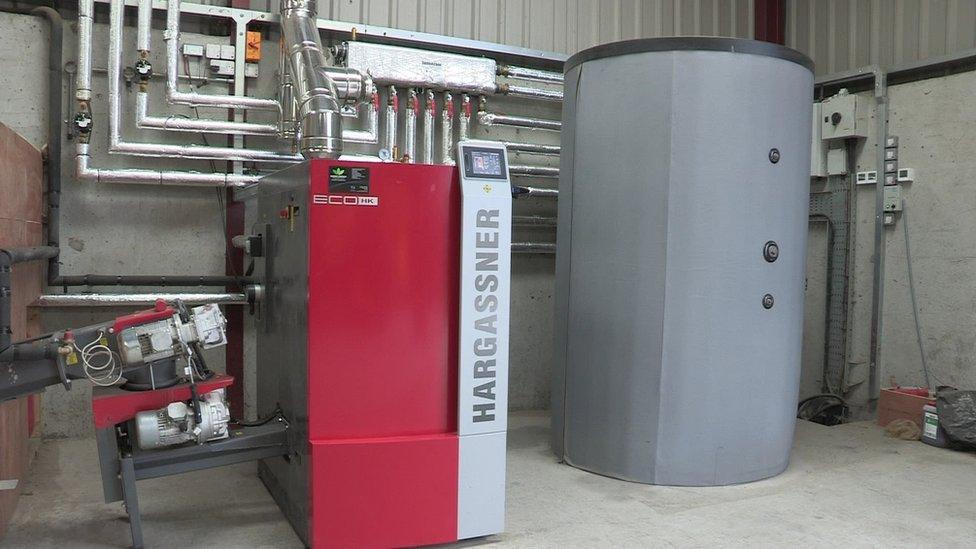
A biomass boiler, similar to those owned by some RHI scheme claimants
He said he would "almost certainly" have raised it with the Departmental Solicitors' Office and with the Treasury.
Mr Moore said it raised the prospect that the tax write-off might be interpreted as additional state aid.
He said it could also potentially have resulted in "further overcompensation" which the state aid rules explicitly prohibited.
He said he would have expected DETI to have addressed the question of tax relief in their detailed work with the consultants who designed the scheme.
Earlier, he described how he got just 24 hours to consider key RHI documents when in similar cases he normally had several months.
He told inquiry chairman, Sir Patrick Coghlin, that having pressed the Department of Enterprise and Investment for detail of the state aid application for months, it was finally delivered just before Christmas 2011.
The head of DETI's Energy Division, Fiona Hepper, insisted that it be submitted to the European Commission for approval immediately so that the scheme could hit a projected launch date of April 2012.
As a result, Mr Moore had to review the documents "overnight" and was only able to "scan them quickly".
He said it was not the "normal" way of working with such state aid applications.
Later, Mr Moore said he was aware of pressure from the top to get the RHI scheme launched.
He said he had not spoken to DETI minister Arlene Foster herself.
But he knew from speaking to her officials in the department's Energy team that there was a sense of urgency.
He said it was a "ministerial priority" to get the scheme launched, with a concentration on hitting an April deadline.
That was missed due to delays and the scheme eventually went live in Autumn 2012.
- Published25 January 2018
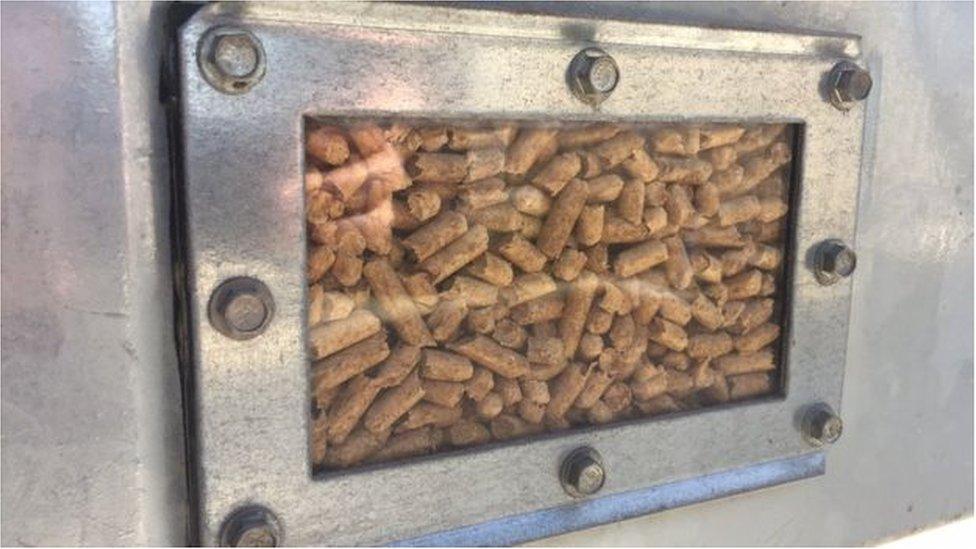
- Published24 January 2018
